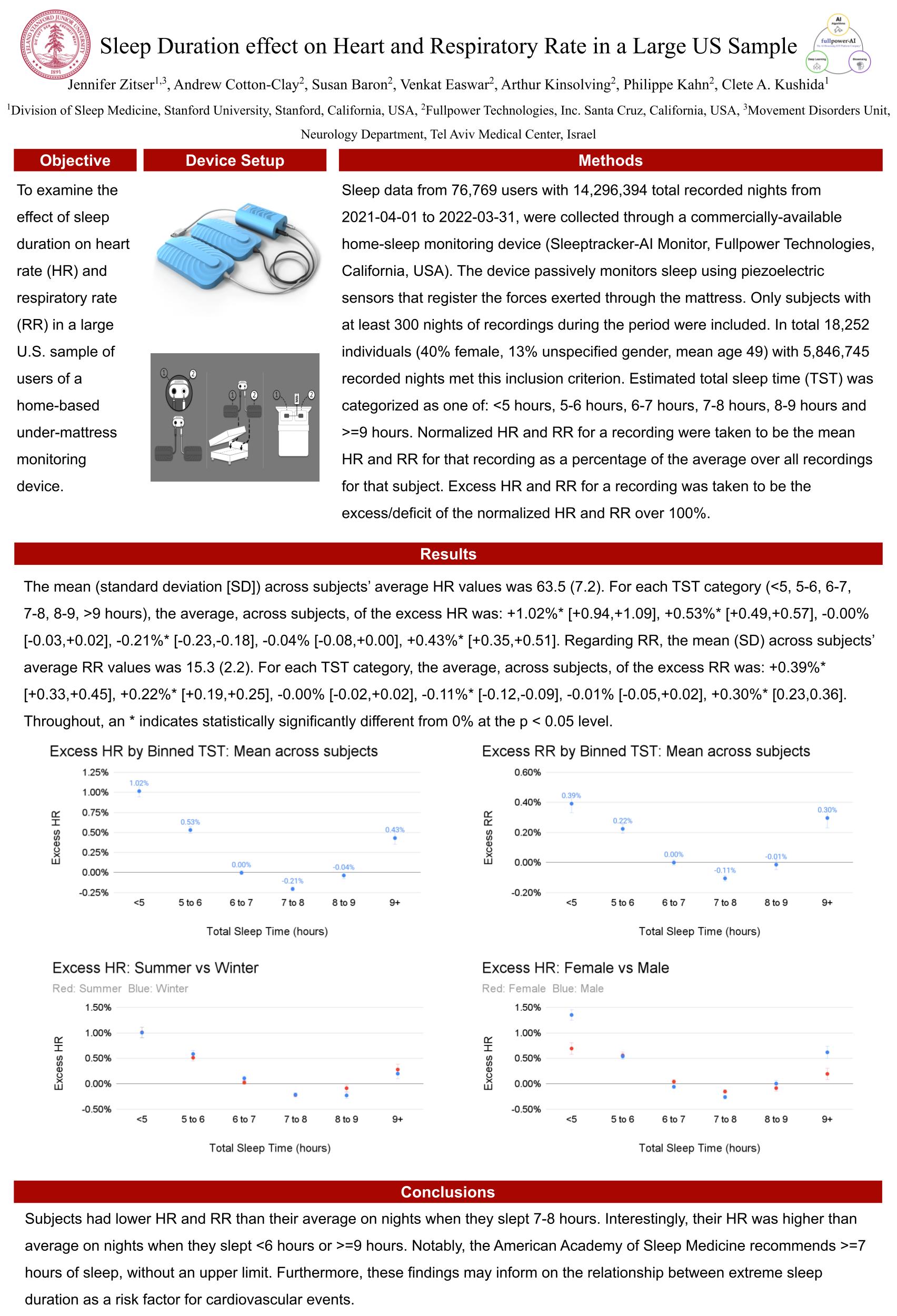
This new, large long-term study by Stanford and Fullpower-AI may show that we should strive to sleep between 6 and 9 hours. Not less and probably not more. As presented at the Athens, Greece, 2022 Sleep summit two weeks ago.
Intuitively sleep deprivation is unhealthy. This very large study shows that sleeping too much, hence 9 hours or more, may not be beneficial. This study looks at the length of actual sleep as opposed to the time spent in bed. This correlation could mean that 6.5 to 8 hours of sleep may be optimal for health. That’s because resting heart and respiration rate are generally considered signposts of wellness.
Sleep data from 76,769 users, with 14,296,394 total recorded nights from 2021-04-01 to 2022-03-31; only subjects with at least 300 nights of recordings during the period were included. In total 18,252 individuals (40% female, 13% unspecified gender, mean age 49) with 5,846,745 recorded nights met this inclusion criterion. Estimated total sleep time (TST) was categorized as: <5 hours, 5-6 hours, 6-7 hours, 7-8 hours, 8-9 hours, and >=9 hours. Normalized Heart Rate (HR) and Respiration Rate (RR) for a recording were taken to be the mean HR and RR for that recording as a percentage of the average over all recordings for that subject. Excess HR and RR for a recording were taken to be the excess/deficit of the normalized HR and RR over 100%. Subjects had lower HR and RR than average on nights when they slept 7-8 hours. Interestingly, their HR was higher than average on nights when they slept <6 hours or >=9 hours.
Notably, the American Academy of Sleep Medicine recommends >=7 hours of sleep without an upper limit. Furthermore, these findings may inform on the relationship between extreme sleep duration as a risk factor for cardiovascular events.
Here is an article from Mayo Clinic about Cognitive Behavioral Therapy for sleep.